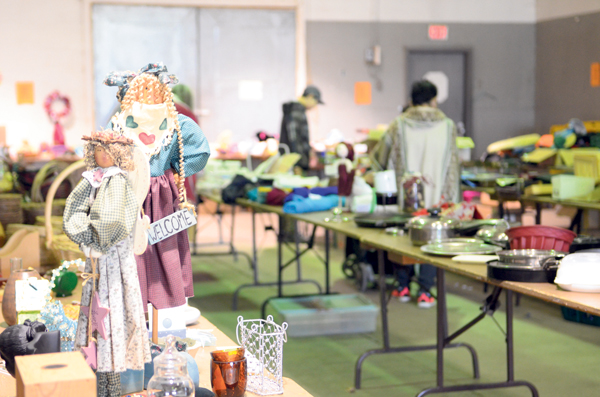As of Tuesday, the provincial government is allowing garage, yard and door-to-door sales as long as they abide by COVID-19 public health orders. Prince Albert’s Lyle Karasiuk, though, is reminding the public that some items are illegal to sell and others you’ll want to be cautious about.
“I don’t think that many people realize that there are certain things that are hazardous that you cannot sell,” said Karasiuk, director of public affairs for Parkland Ambulance.
This includes baby walkers, infant self-feeding devices, jequirity beans, lawn darts with elongated tips and polycarbonate baby bottles containing BPA.
He pointed to Health Canada guidelines saying anyone holding a garage sale is legally responsible to make sure items meet current regulatory requirements. A lot of these items are safety equipment itself, such as helmets or car seats, and others are personal items like cosmetics.
“If I buy a toaster or something and it doesn’t work and I paid $2 for it, I really don’t think nothing of it because it only cost $2, but some of these items have significant impacts to our health and safety,” he said.
A toaster, for example, may not have a manufactured end. Car seats that have exceeded the recommended lifespan of the manufacturer or have been in a collision may not be safe for use. Used, old, or damage cosmetics contain harmful bacteria that could cause skin rashes or infections.
“There’s always that risk. Maybe I buy something, it doesn’t fit, it doesn’t work, so I’m not too worried about it. I didn’t pay that much,” said Karasiuk, but “some things you shouldn’t sell to keep those things out of the marketplace.”
“Maybe they are just simply worn out or are meant to be recycled, sent to SARCAN or be disassembled if they’re an electronic good or simply just sent to the landfill.”
Karasiuk said it’s not that you can’t sell the types of items he’s warning people about, but to be cautious before you slap a price tag on those items to sell or give away. You can visit Health Canada’s website before selling a potentially hazardous item, or get in contact with the consumer protection branch located in Saskatoon.
For buyers, Karasiuk said he always asks himself ‘Would I want to buy this at a garage sale?’
“In other words, there’s probably some things that people just feel uncomfortable buying, those things might be a hockey helmet, a car seat, a child’s crib,” he said.
“The more we’re buyer aware about products, the safer we’re going to be.”
Here are more examples of items that you should be wary about before selling or giving away, as laid out by Health Canada:
- Baby gates — Baby gates that have diamond-shaped openings or ‘V’ openings at the top larger than 38 mm, or 1.5 in, are illegal to sell in Canada. This is because children can get their heads caught in these openings and strangle.
- Corded window coverings — Children can strangle on cords and bead chains of blinds and curtains.
- Children’s jewelry — A child can get lead poisoning if they suck, chew, or swallow jewelry containing lead, which is a soft, heavy metal and very toxic substance. It is illegal in Canada to sell children’s jewelry that contains lead above the allowable limit. If you’re unsure whether or not a children’s jewelry item contains lead, don’t sell it.
- Strollers and carriages — Strollers and carriages made before 1985 should not be sold as they may not meet current regulatory requirements. Strollers must come with a lap belt and crotch strap that is solidly attached to the seat or frame. Make sure that it breaks, that the wheels are solidly attached.
- Toys — Toys that are in poor repair, broken, have sharp edges or points, or plush toys with loose eyes or noses are not safe and shouldn’t be sold. Recently, there’s been an increased number of recalls on toys containing lead.
- Garden torches — The wick and the reservoir of garden torches, or Tiki torches, contain kerosene, citronella or another liquid fuel that when ingested could cause serious health effects in children, including death.
- Ice hockey helmets and face protectors — Ice hockey helmets and face protectors sold in Canada must carry a sticker indicating that they meet safety standards set by the Canadian Standards Association and clearly show the standard number. Ice hockey helmets must also have a chin strap and label with the date of the manufacturer. If older than five years, showing signs of damage or missing parts, don’t sell it.
The provincial government allowed garage sales to start up again on July 21 as part of Phase 4 of its Re-Open Saskatchewan plan.
Sales must limit gatherings to 30 people or less while maintaining two metres between others, do not provide any sort of food or beverage, disinfect tables before use and wash your hands often.


